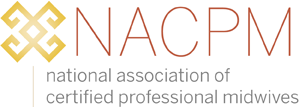Although postpartum hemorrhage (PPH) is always a potential childbirth complication, little is known about the availability and use of uterotonic medication during community birth. Unfortunately, the variability of access to uterotonic medication based on credentials of the midwife or state regulations governing midwifery can present barriers to safe care.
Please join NACPM and Dr. Melissa Cheney for the 24th webinar in our Clinical Practice Series, where Dr. Cheney will present research on midwives and postpartum hemorrhage conducted with her colleagues Elise N. Erickson and Marit Bovbjerg and published in the journal Birth. The research to be presented is based on data from the Midwives Alliance of North America 2.0 database from 2004-2009. Dr. Cheney’s presentation will describe rates of PPH by midwifery credentials and by the presence of regulations for legal midwifery practice, information on PPH incidence in community birth, demographics and clinical characteristics of the studied population, and methods used by midwives to address PPH.
Dr. Cheney is an Associate Professor of Clinical Medical Anthropology at Oregon State University and an Oregon Licensed Midwife. She is Co-Director of Uplift – a research and reproductive equity laboratory at OSU, where she serves as Primary Investigator on more than 20 maternal and infant health-related research projects. She is the author of an ethnography entitled Born at Home (2010 Wadsworth Press), co-editor of Birth in Eight Cultures (2019, Waveland Press), and has published more than 60 peer-reviewed articles that examine the cultural beliefs and clinical outcomes associated with midwife-attended birth at home and in birth centers in the United States.

